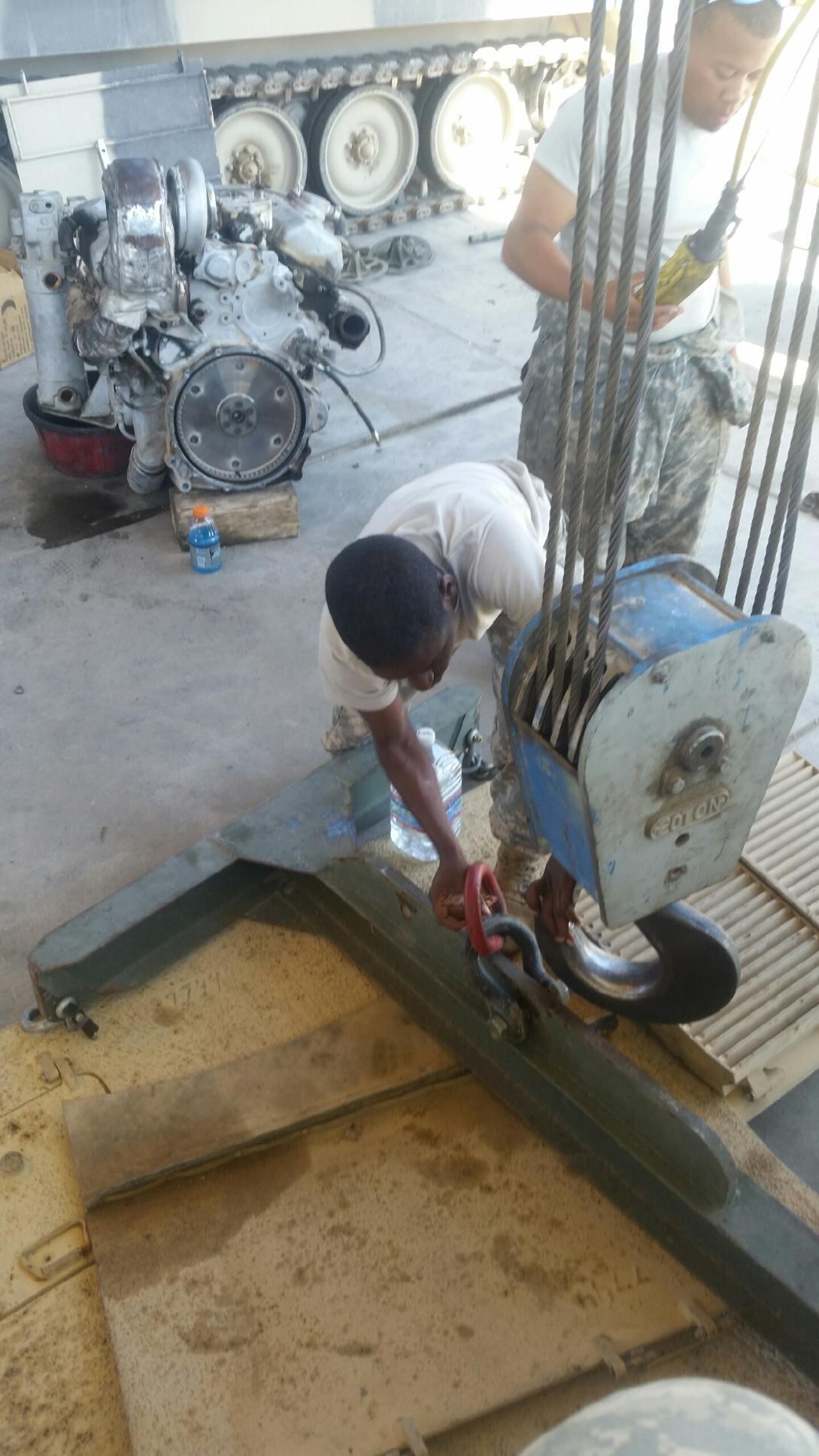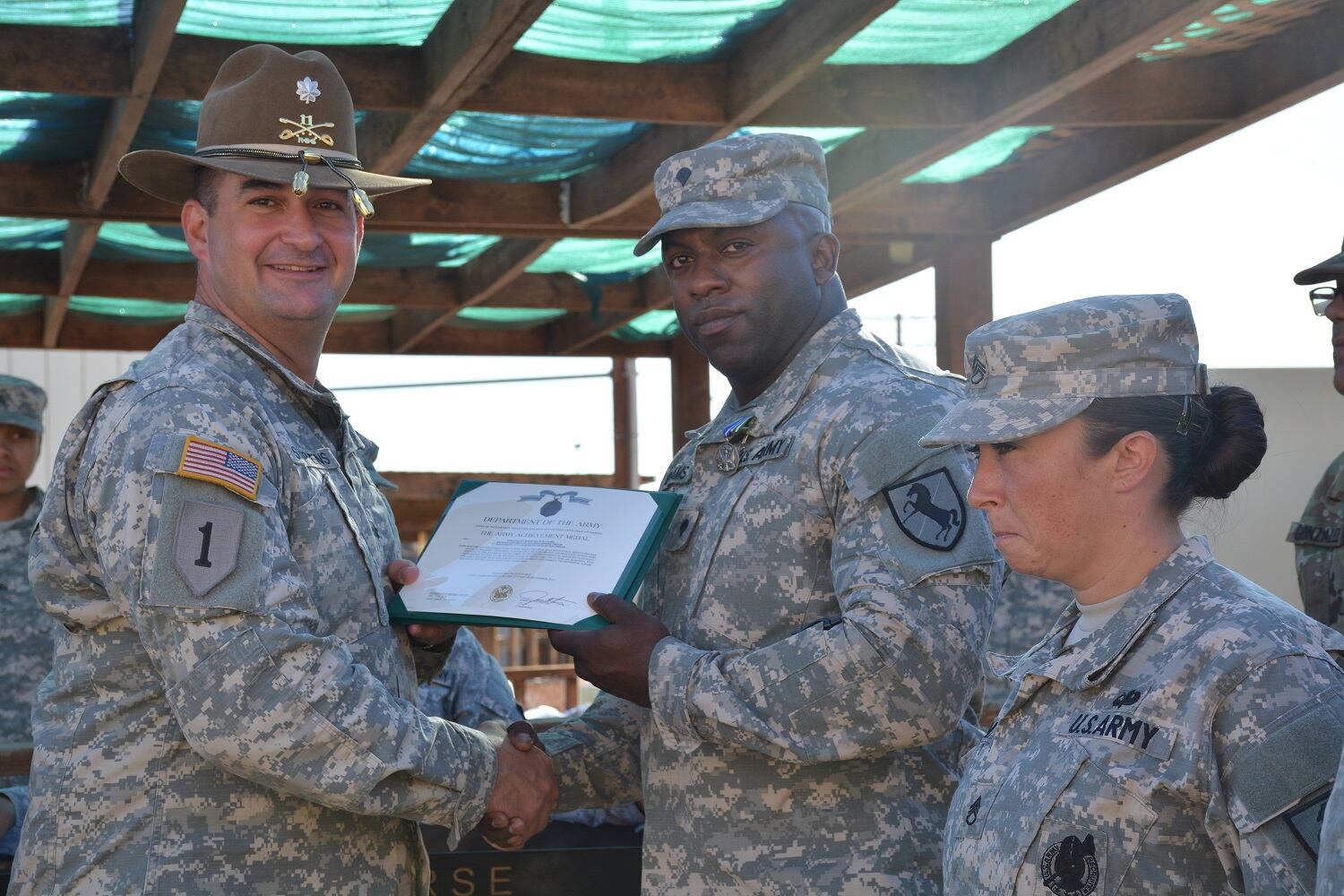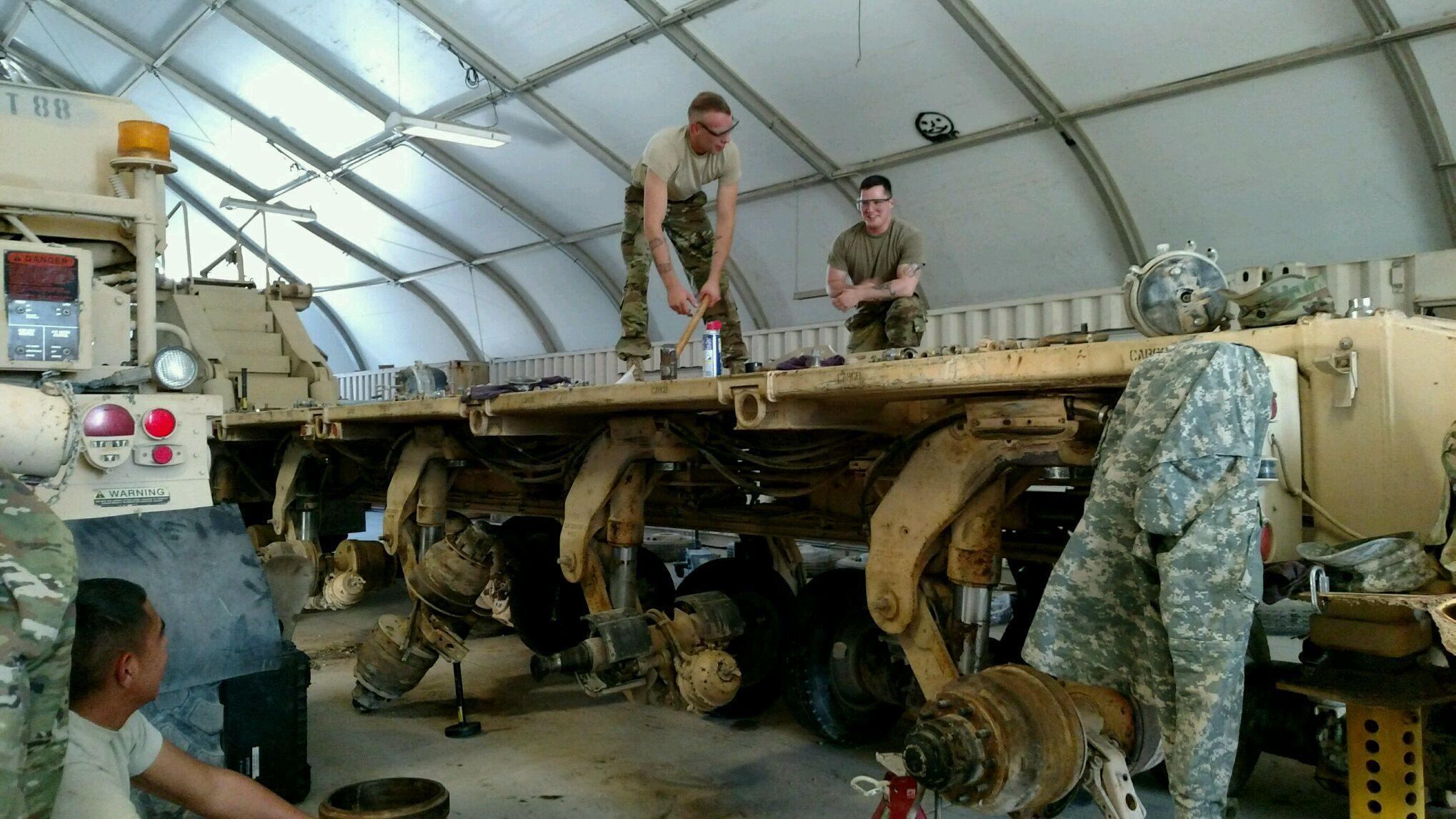Soldiers participating in exercises at the California base's National Training Center do battle with the 11th Armored Cavalry Regiment, which provides the opposing force (or OPFOR) for the visiting units to work against. When the training unit heads home, the OPFOR resets. While a unit might rotate through the NTC once every two or three years, the 11th ACR takes on all comers.
That puts pressure on maintainers and often pushes the unit's vehicles – two dozen variants, including everything from Abrams tanks to Bradley Fighting Vehicles to Humvees – beyond their maintenance windows. That need became the inspiration for Platinum Wrench, a 26-member platoon of Guard and Reserve soldiers with 91-series military occupational specialties, getting the OPFOR ready to meet its mission.
The evolution paid off: The platoon performed 118 maintenance jobs in about 70 working days, piling up more than 2,400 man-hours and reducing the unit's backlog – termed "delinquent services" – by 50 percent, Brant said.
The success rate has led to plans for a yearlong Platinum Wrench that could begin as early as this month, pending budget approval. And the OPFOR "bad guys" aren't the only team that will benefit.
"It was an absolutely outstanding opportunity for all of them to get some active-duty experience."

Spc. Antrone Stevenson, from an Alaska Army National Guard unit, and Spc. Edra Murdock, from a Ga. Guard unit, hook up an engine pack sling in order to replace an engine as part of vehicle maintenance during the Platinum Wrench pilot program at Fort Irwin, Calif.
Photo Credit: Army
Boots (and tools) on the ground
"Two weeks, we thought, would not be beneficial, because they would still be getting familiar with the equipment and the processes," Hansen said. "We didn't see a great advantage of them coming here. Ninety days, we saw the ability for them to produce more."
So they came up with the three-month plan. And they came up with it quickly: A team led by Vickers began preparing in earnest in May, received funding in June and had mechanics on the ground by mid-July, Brant said.
Domingo's trip to Fort Irwin from Whittier, California, only took about two hours, but his soldiers came in from all over the map, including the East Coast and Alaska. Charged with quickly establishing unit cohesion, Domingo kept his message simple.
"It says 'United States Army' on the shirt. It does not say 'Guard' or 'Reserve,'" said the Reserve NCO, with 163rd Ordnance Company. "Once you put that uniform on, you belong to me and the active-duty Army component. And you are all mechanics, here to do one job."
He was told he'd receive the "aces" of the specialty and he said their skills didn't disappoint. Hansen agreed, saying that any inexperience the mechanics had on unfamiliar vehicles was overcome by their strong work ethic and ability to learn quickly.
"They were looking to get stuff done," Hansen said. "The M1s, I gave them a mechanic to help walk them through it, they worked side by side, and after two tanks, they were trained, they were good to go. They could complete the services on those without assistance."

Lt. Col. James Stephens, head of the 11th Armored Cavalry Regiment's support squadron, presents the Army Achievement Medal to Spc. Michael Williams, a reservist from Fla., for his outstanding performance during the Platinum Wrench pilot program.
Photo Credit: Army
Getting familiar
"Me and one other individual were working on the M1000 [Heavy Equipment Transport] trailers primarily since we've been down here, and that's a piece of equipment in my unit in Alaska, we don't have," Pruski said. "I had experience on it in training, but down here … I learned a lot more about them than I previously knew."
At Fort Irwin, he said, "We worked on the M1s. The tanks. … It was a great experience. We learned a lot."
Both Trotter and Pruski praised their active-duty counterparts for sharing their expertise and offering hands-on assistance – training Trotter hopes will come in handy as he pursues a move to the active force.
The learning went both ways, Pruski said: "In some instances, I had some more knowledge on some of the wheeled vehicles than other soldiers, and they were asking me how to do stuff."
Both the active-duty soldiers and Domingo, the E-7 in charge of the platoon, said there were few, if any, assimilation problems, and that they looked forward to the expanded benefits a yearlong program could offer. In addition to improved maintenance records for the active-duty unit, Domingo said the training itself can be a retention tool for hard-charging Guard and Reserve soldiers.
"As the senior NCO, our job is to try to keep these soldiers in, to keep them motivated," Domingo said. "We can retain the soldiers [by helping them] do what they actually were trained to do."

Active-duty mechanics worked alongside National Guard and Army Reserve members during Platinum Wrench, making a major dent in the 11th ACR's maintenance backlog.
Photo Credit: Army
365-day tour
Organizers are hoping for another quick turnaround with the proposed yearlong program. If funding can be secured, plans call for recruiting new mechanics in a matter of weeks.
Interested soldiers with a 91-series MOS can apply via the Tour of Duty website by establishing a volunteer profile, Vickers said. Guardsmen and reservists both require approval from their chain of command.
"Over an extended period of duty, less can do more because of no equipment movement, no unit travel time and 91-series soldiers on-site 24/7, as required by the mission," Vickers said.
As Brant, the OPFOR captain, put it, "As long as they are a mechanic, we have something for them to work on and learn proper procedures for."
Kevin Lilley is the features editor of Military Times.










